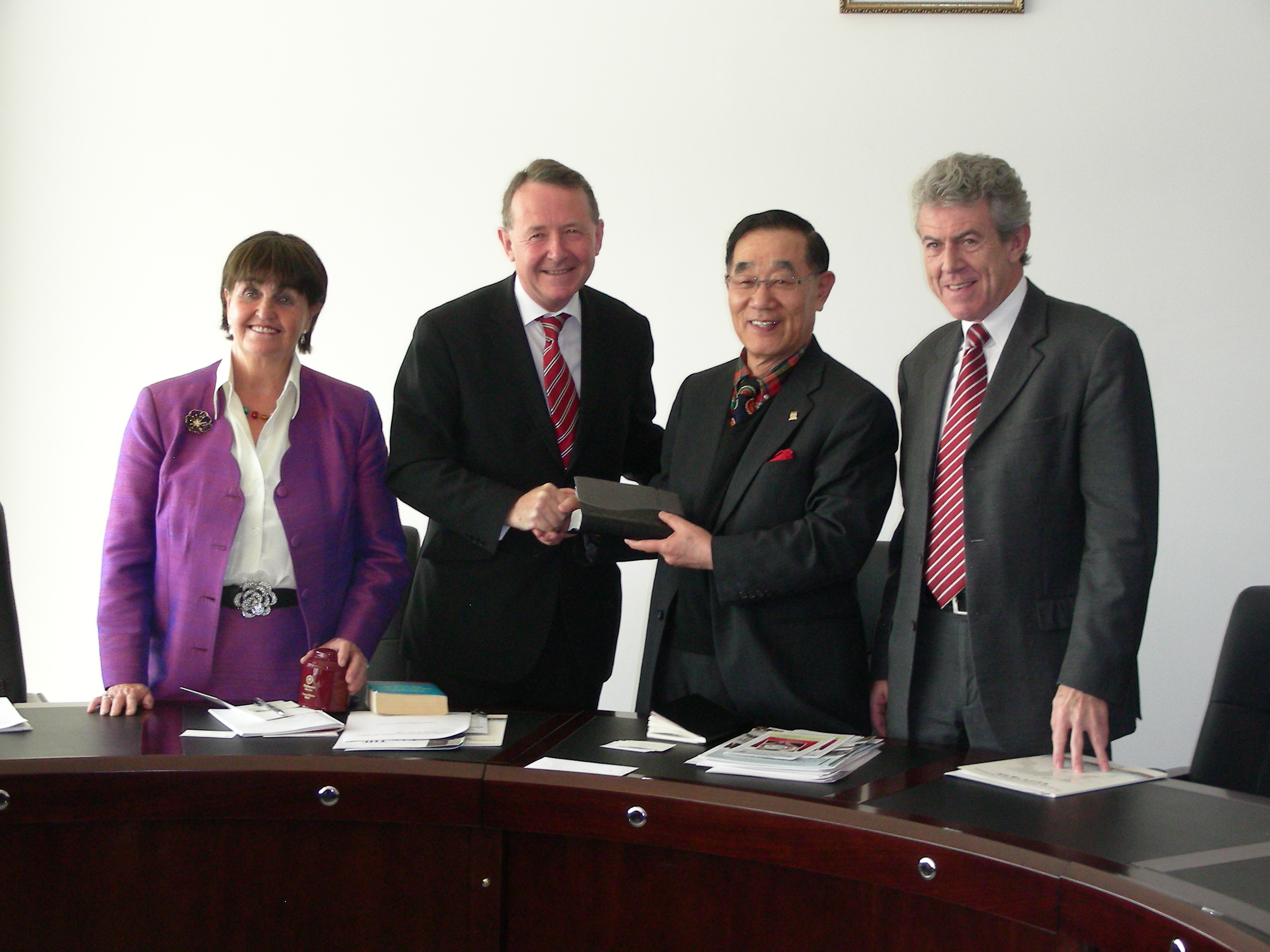As many of you know, Lord David Alton, a member of the British Parliament, is a long-time advocate of international human rights and has worked closely with Jubilee Campaign for many years. He recently returned from this third trip to North Korea, accompanied by Baroness Caroline Cox, and they published a report on their findings.
in HIS grace,
Ann Buwalda
Executive Director
******************************************************
All Party Parliamentary Group for North Korea – House of Lords, London SW1A OPW
TWO BRITISH PARLIAMENTARIANS CALL FOR PEACE TALKS AFTER VISIT TO NORTH KOREA
Friday, 29 October, 2010 For Immediate Release
Lord Alton of Liverpool and Baroness Cox of Queensbury returned yesterday from their third visit to North Korea, and called on the international community to facilitate a peace conference to turn the Korean armistice into a permanent peace agreement. They are also advocating engagement with North Korea to address human rights, in a process similar to the Helsinki Process initiated by Margaret Thatcher and Ronald Reagan with the Soviet Union.
In their report, Building Bridges, Not Walls: The Case for Constructive, Critical Engagement with North Korea, released today, the two Parliamentarians argue that “the current armistice on the Korean peninsula, sixty years after the outbreak of hostilities, is a completely unsatisfactory and destabilising situation”. They call on a neutral country, such as Switzerland or Sweden, and a former combatant country, such as the United Kingdom, to work with China to facilitate a peace conference in Beijing to negotiate a peace treaty.
During their visit Lord Alton, Chairman of the UK’s All Party Parliamentary Group (APPG) for North Korea, and Baroness Cox, the APPG’s Vice-Chairman, met senior North Korean officials including the Speaker of the Supreme People’s Assembly, Choe Tae Bok, the Vice Foreign-Minister, Kung Sok Ung, and the Chairman of the DPRK-EU Friendly Parliamentary Group of the Supreme People’s Assembly, Ri Jong Hyok. They also visited the Supreme Court. Their visit coincided with the tenth anniversary of the establishment of diplomatic relations between North Korea and the UK, and followed their previous visits in 2003 and 2009.
In all their meetings, Lord Alton and Baroness Cox raised concerns over North Korea’s human rights record, including public executions, torture, violations of religious freedom, women’s and child rights and the country’s notorious prison camps. They delivered copies of reports from the former UN Special Rapporteur for North Korea, Vitit Muntarbhorn, the UN’s Universal Periodic Review of North Korea’s human rights record, Human Rights Watch as well as their own summary of concerns and recommendations.
Lord Alton said: “Our visit came at a historic time, following the recent changes in the North Korean leadership and coinciding with both the tenth anniversary of diplomatic relations between our two countries and the sixtieth anniversary of the start of the Korean War. We believe it is vital to engage with the North Koreans, and to make it a priority to seek a permanent solution to the instability on the Korean Peninsula. The current situation, which is neither war nor peace, cannot be allowed to continue. We also believe it is time to engage robustly on human rights, in what we call ‘Helsinki with a Korean face’. We urge the North Koreans to invite the new Special Rapporteur for Human Rights in North Korea, Marzuki Darusman, to visit the country, and open its prison camps to access for international monitors, including the International Committee of the Red Cross. We also urge the United States to seize the opportunity and engage in meaningful dialogue with North Korea on a range of issues, including peace, security and human rights. It is time develop a new approach in the search for peace on the Korean peninsula.”
Baroness Cox said: “During our visit, we raised important concerns, and we also saw some small, incremental signs of change in North Korea. We believe these changes, particularly in education, health care and the economy, should be encouraged by increased cultural and educational exchanges, and greater access to the country for international humanitarian organisations. We visited the three official churches in Pyongyang, the Russian Orthodox, the Catholic church and the Protestant church, and while we recognise that these are not representative of the situation for Christians in the rest of the country, we welcome some developments, including the establishment of a Protestant seminary which we visited. We urged the North Korean authorities to improve religious freedom for all North Koreans, and to allow the Catholic Church to have a priest. We also raised recent reports of the arrest of 20 Christians and the execution of three. It is essential that we engage in constructive, critical dialogue with North Korea, so that we have an opportunity to raise these important issues with the authorities there and encourage an opening up. The North Korean people do not deserve isolation. We urge the international community to build bridges to the people of North Korea.”


